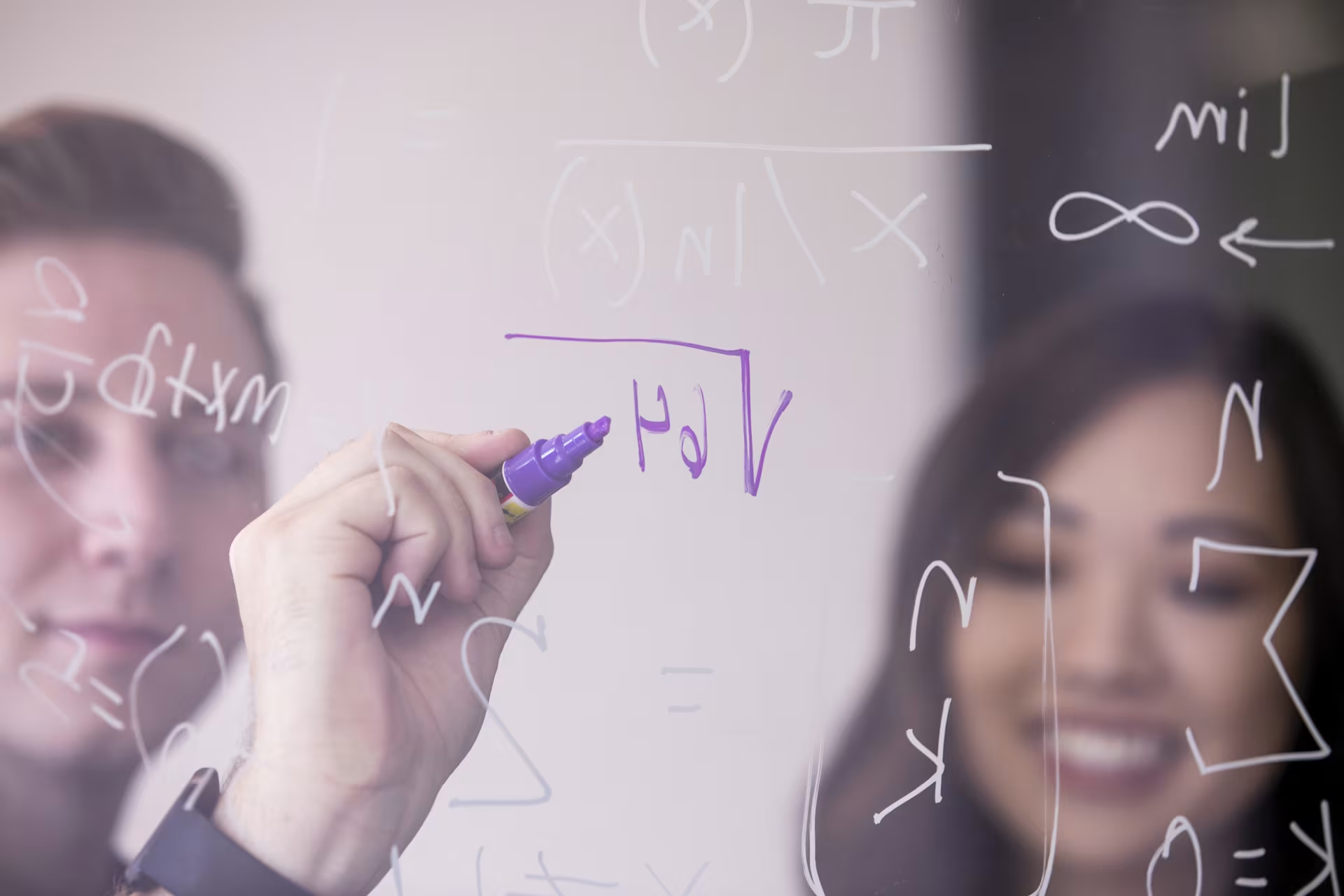


Up to 90 credits, only 84 can be lower division
Credits: Fill out the Lopes Eval to find out what will transfer
Admission Requirements (Bachelor's)
OR 2.5+ Unweighted GPA and
Admission requirements may differ based on degree level, program and modality, or transfer status. Some programs of study may require a higher GPA and/or other qualifying criteria for admission. Please review full admission and program requirements in the University Policy Handbook.
*Math and reading only on a 1600 point scale (test date after 3/1/2016). SAT score of 1380 required for 2400 point scale (test date before 3/1/2016).
Grand Canyon University offers the Bachelor of Science in Mathematics for Secondary Education degree program that can prepare you for a career inspiring and educating adolescent learners. Graduates can be prepared with the critical thinking and general problem-solving skills to tackle difficult problems from any field and to teach their own students to do the same.
This math secondary education degree is a joint initiative of GCU’s College of Education and the College of Humanities and Social Sciences. This Bachelor of Science in Mathematics for Secondary Education degree from GCU also leads to initial teacher licensure.

GCU students can benefit from a curriculum intended to cultivate clear communication and critical analysis skills. As you pursue your BS in math for secondary education, you will have the opportunity to explore ways of integrating your Christian values and ethical convictions into your intended career path.
With a balanced program of applied and theoretical mathematics and education courses, you can complete a solid curriculum of mathematics content while developing the methodological expertise to become an effective and skilled secondary educator. The foundational framework for this curriculum is derived from the National Council of Teachers of Mathematics Content Standards, the National Council of Teachers of Mathematics Secondary Initial Prep and the Interstate Teacher Assessment and Support Consortium Model Core Teaching Standards.
This bachelor’s degree can be completed through online classes taught by knowledgeable faculty members and adjunct instructors.
To be able to lead to licensure, this bachelor’s degree in math must have a curriculum that can provide you with the skills to be a secondary math teacher. Relevant skills you can develop and acquire in this program include:

An online math education degree can help prepare you to pursue a career teaching adolescents how to develop critical thinking and problem-solving skills. You might decide to apply for work as a middle or high school teacher in a public or private educational setting.
Beyond serving as a math teacher, a BS in math secondary education degree online can be applied to a range of industries, such as:(See disclaimer 1)
Some career paths may require additional educational credentials.
This BS in teaching secondary mathematics requires the successful completion of 120 credits. Graduates will demonstrate mastery of these key areas:
This secondary education mathematics degree requires the completion of a student teaching experience. Student teachers have the opportunity to apply their knowledge and skills in a real classroom setting.


If you have a passion for mathematics and seek to inspire secondary school students to feel the same, fill out the form on this page to get started in your teaching journey at GCU.
If you’re considering pursuing a career teaching secondary mathematics, review some of the most frequently asked questions to gain more insight into a career in this field.
What is secondary education mathematics?
Will the BS in Mathematics for Secondary Education degree lead to a teaching license?
How long is the student teaching experience for the bachelor’s in math secondary education degree program?
Are math teachers needed?